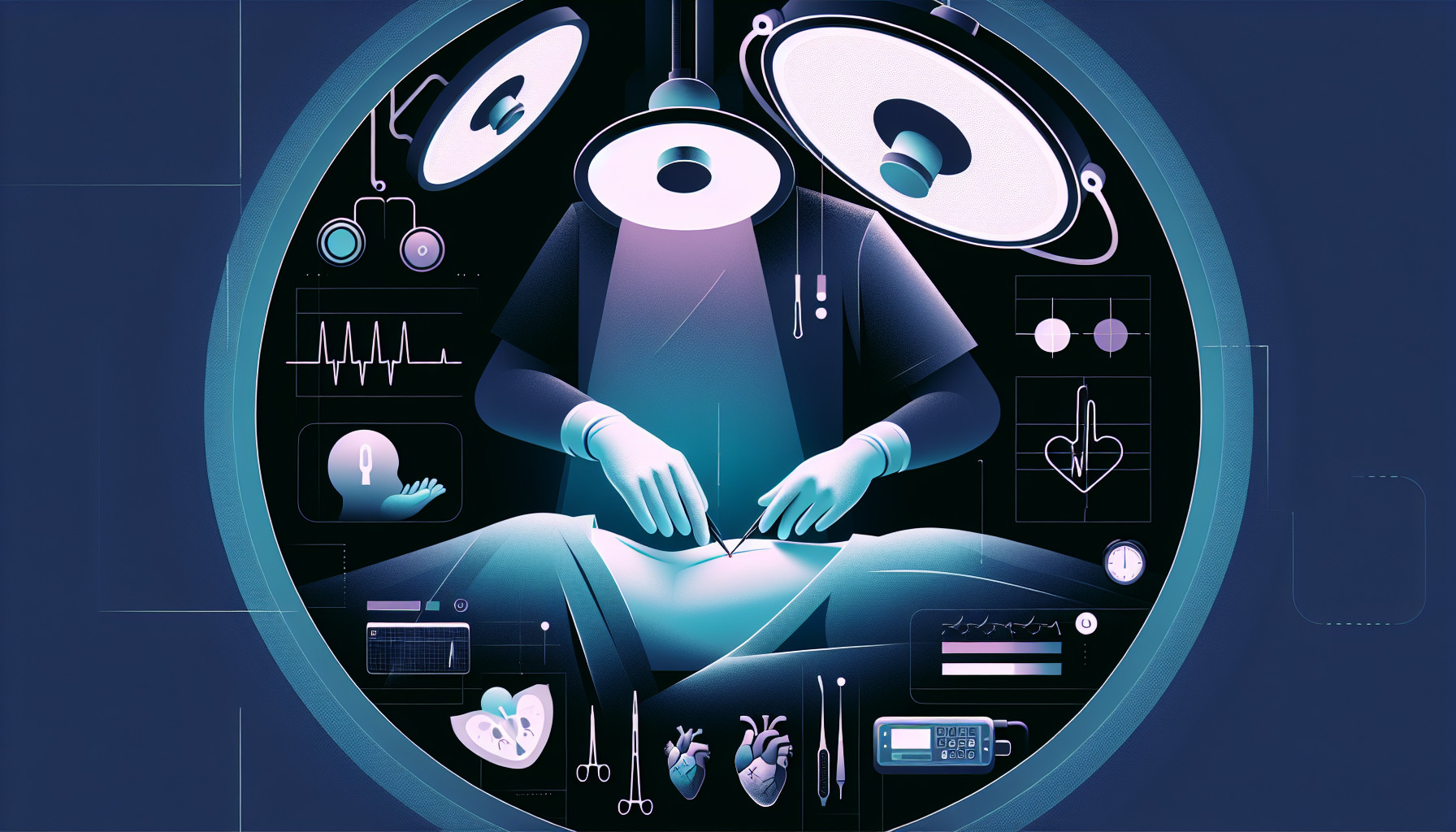Our Summary
Breast cancer is the most common cancer in women globally and can cause significant emotional distress, impacting the quality of life and potentially increasing the risk of death. This study investigates whether esketamine, an antidepressant, can reduce depressive symptoms after breast cancer surgery in patients who were not depressed prior to the operation.
The researchers assigned 64 women who were having a specific type of breast cancer surgery into two groups: one group received esketamine, and the other (the control group) received a saline solution. They measured outcomes using a questionnaire to assess depression symptoms, a scale for pain, inflammatory markers, and other factors related to the surgery, as well as side effects like delirium, nausea, and vomiting.
They found that on the first day after surgery, the depression score for the group that received esketamine was lower than before the operation and lower than the control group’s score. However, there was no significant difference between the two groups’ depression scores on days 3, 7, and 30 after surgery. The esketamine group also had higher levels of white blood cells post-surgery, indicating a stronger immune response.
The study concluded that a single low dose of esketamine could reduce depressive symptoms the day after surgery without increasing the risk of side effects.
FAQs
- Can esketamine reduce depressive symptoms following breast cancer surgery?
- What were the main findings of the study on esketamine use after breast cancer surgery?
- Did the use of esketamine after breast cancer surgery have any impact on the immune response?
Doctor’s Tip
One helpful tip a doctor might tell a patient about radical mastectomy is to make sure to follow all post-operative care instructions carefully, including taking prescribed medications, attending follow-up appointments, and monitoring for any signs of infection or complications. It is also important to take care of your emotional well-being during this time and seek support from loved ones or a mental health professional if needed.
Suitable For
Patients who are typically recommended radical mastectomy are those with:
- Large tumors in the breast
- Tumors that are close to the chest wall or skin
- Multiple tumors in the breast
- Inflammatory breast cancer
- Recurrent breast cancer
- Genetic mutations that increase the risk of breast cancer, such as BRCA1 or BRCA2
- Patients who are unable to undergo breast-conserving surgery due to the size or location of the tumor
It is important for patients to discuss with their healthcare provider the best treatment options for their specific situation, as radical mastectomy is a major surgery and can have significant physical and emotional impacts.
Timeline
Before radical mastectomy:
- Patient is diagnosed with breast cancer and discusses treatment options with healthcare provider.
- Patient undergoes pre-operative tests and preparations for surgery.
- Patient may experience anxiety and fear related to the upcoming surgery and potential outcomes.
After radical mastectomy:
- Patient undergoes surgery to remove the breast tissue, lymph nodes, and possibly other surrounding tissues.
- Patient may experience pain, discomfort, and fatigue post-surgery.
- Patient may have a hospital stay for monitoring and recovery.
- Patient begins the process of healing and adapting to changes in their body.
- Patient may experience emotional distress, body image issues, and concerns about cancer recurrence.
- Patient may undergo additional treatments such as chemotherapy, radiation therapy, or hormone therapy.
- Patient receives follow-up care and monitoring to ensure the cancer has been effectively treated.
What to Ask Your Doctor
- What is a radical mastectomy and why is it recommended in my case?
- What are the potential risks and complications of a radical mastectomy?
- Are there any alternative treatment options to consider?
- What is the recovery process like after a radical mastectomy?
- Will I need additional treatments such as chemotherapy or radiation therapy?
- How will a radical mastectomy impact my daily activities and quality of life?
- What are the long-term effects of a radical mastectomy?
- How often will I need follow-up appointments and monitoring after the surgery?
- Are there any support groups or resources available for patients undergoing a radical mastectomy?
- How can I best prepare myself physically and emotionally for a radical mastectomy?
Reference
Authors: Wang H, Te R, Zhang J, Su Y, Zhou H, Guo N, Chi D, Huang W. Journal: BMC Psychiatry. 2024 Apr 24;24(1):315. doi: 10.1186/s12888-024-05753-9. PMID: 38658886
